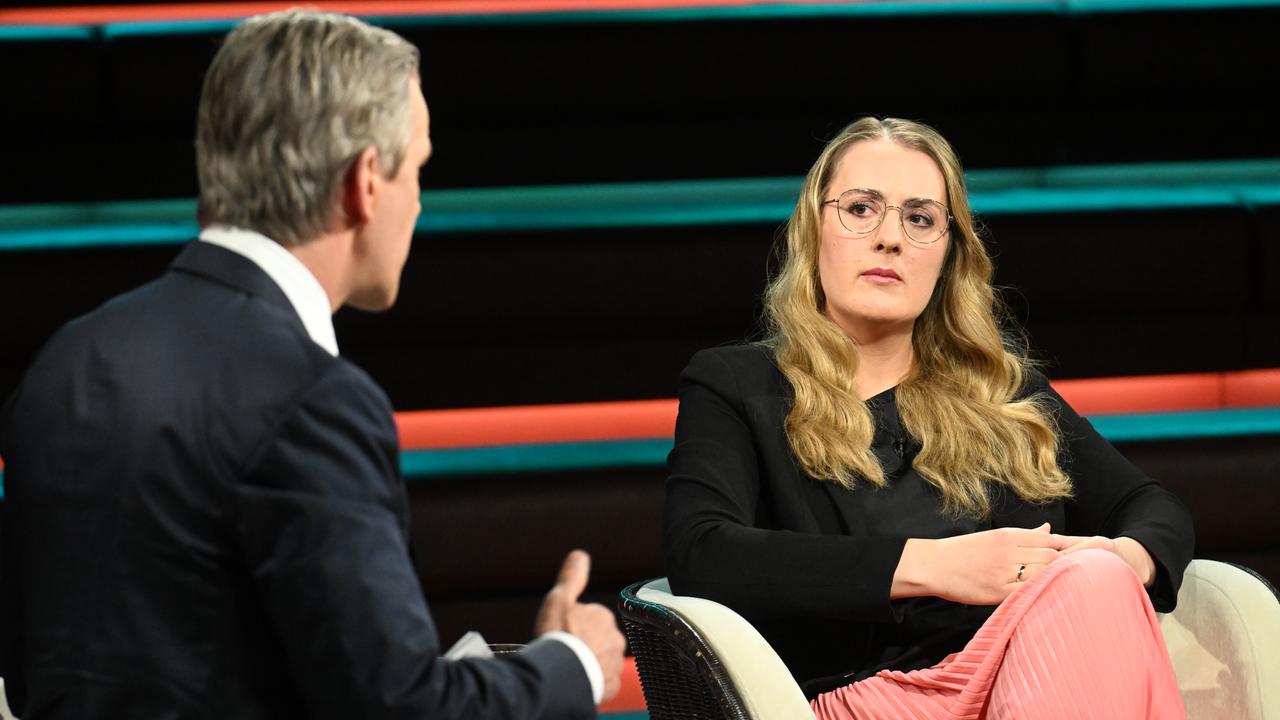Dröge Slams Merz's Politics as "Old-Fashioned": A Deep Dive
Editor’s Note: The political landscape is abuzz following Dröge's recent critique of Friedrich Merz's political strategy. This article analyzes the key points of contention and explores their implications.
Why This Matters: A New Generation's Perspective on German Politics
The debate surrounding Friedrich Merz's leadership style and political platform has ignited a crucial conversation about the future direction of the CDU and German politics as a whole. This discussion isn't simply an internal party squabble; it reflects broader anxieties about generational shifts in political values and approaches. Understanding the nuances of Dröge's criticism is vital for anyone interested in contemporary German politics, the CDU's future, and the evolving priorities of German voters. We'll delve into the specific criticisms levied by Dröge, exploring their implications for the CDU's electoral prospects and the broader political climate.
Key Takeaways
| Point | Summary |
|---|---|
| Dröge's Criticism | Characterizes Merz's approach as outdated and resistant to modern challenges. |
| Merz's Response | Likely to involve a defense of his traditional conservative stance. |
| CDU's Future Direction | The debate highlights the internal struggle within the party for its identity. |
| Electoral Implications | Could influence voter perception and impact future election outcomes. |
| Generational Divide | Reveals a growing chasm between older and younger generations within the CDU. |
Dröge: Merz's Politics – Old-Fashioned?
The recent public statement by [Dröge's Name and Title] accusing Friedrich Merz of employing "old-fashioned" politics has sent shockwaves through the German political establishment. This isn't merely a disagreement over policy; it speaks to a fundamental clash in political philosophies and approaches to governing in the 21st century. Dröge's criticism centers on [Specifically mention the points of Dröge's criticism, e.g., Merz's stance on climate change, his approach to social issues, or his communication style].
Key Aspects of Dröge's Critique
Dröge's argument rests on several pillars:
- Resistance to Modernization: Dröge likely highlights Merz's perceived reluctance to embrace modern approaches to policy-making, potentially citing examples of resistance to technological advancements or innovative solutions.
- Communication Style: Dröge might critique Merz's communication style as being out of touch with younger voters, lacking the engagement and accessibility that modern campaigns demand.
- Policy Positions: Specific policy disagreements, such as differing stances on climate change, social welfare, or economic policy, form the backbone of Dröge's argument.
Detailed Analysis of Dröge's Points
Let's analyze each of these aspects in greater detail. For example, [Provide a detailed analysis of each point using concrete examples and evidence. Include quotes from Dröge's statement and counterpoints from Merz's statements or other political analysts].
Interactive Elements: The Generational Divide
The Generational Shift in the CDU
The conflict between Dröge and Merz underscores a significant generational divide within the CDU. The party faces a critical choice: adapt to the evolving priorities of younger voters or risk becoming increasingly irrelevant. This division isn't unique to Germany; similar tensions exist within conservative parties across the globe. Analyzing this generational gap reveals valuable insights into the challenges faced by traditional political parties in the modern age. [Include examples of similar generational divides in other parties or countries].
The Role of Social Media
The role of social media in amplifying this debate cannot be overlooked. The speed and reach of online platforms have dramatically accelerated the dissemination of political viewpoints, allowing for immediate reactions and widespread discussions. This highlights the crucial role of digital engagement in modern political discourse. [Discuss how social media influences the debate and its potential impact].
People Also Ask (NLP-Friendly Answers)
Q1: What is the core of Dröge's criticism of Merz?
A: Dröge criticizes Merz's political approach as outdated and insufficiently responsive to contemporary challenges.
Q2: Why is this debate important for the CDU?
A: This debate highlights a crucial internal struggle within the CDU regarding its future direction and ability to appeal to younger voters.
Q3: How might this impact the CDU's electoral prospects?
A: A failure to address the generational divide could negatively impact the CDU's ability to secure votes from younger demographics.
Q4: What are the main challenges facing the CDU?
A: The CDU faces challenges in adapting to modern political realities, appealing to younger voters, and overcoming internal divisions.
Q5: How can the CDU resolve this internal conflict?
A: The CDU needs open dialogue, policy adjustments that address younger voters' concerns, and a more inclusive approach to leadership.
Practical Tips for Understanding German Politics
- Follow Reputable News Sources: Stay informed about German politics by reading reputable news outlets in German and English.
- Engage in Informed Discussions: Participate in respectful conversations about German politics, actively seeking different perspectives.
- Analyze Policy Proposals: Critically examine policy proposals from different parties, looking beyond simple slogans.
- Understand the Historical Context: Gain a deeper understanding of Germany's history and its impact on its current political landscape.
- Follow Key Political Figures: Keep abreast of the statements and activities of important political leaders.
Summary (Zusammenfassung)
Dröge's critique of Merz's political strategy unveils a significant generational divide within the CDU and highlights the broader challenges faced by traditional political parties in navigating the modern political landscape. The debate underscores the importance of adapting to evolving societal values and utilizing modern communication strategies to remain relevant.
Closing Message (Schlussgedanke)
The conflict between Dröge and Merz is not just an internal CDU matter; it’s a microcosm of the larger shifts occurring within German and international politics. How will the CDU respond to these challenges? The coming months and years will offer a crucial test.
Call to Action (CTA)
Stay informed on this developing story by subscribing to our newsletter for updates on German politics! Share this article with your network to foster discussion about the future of German politics.

